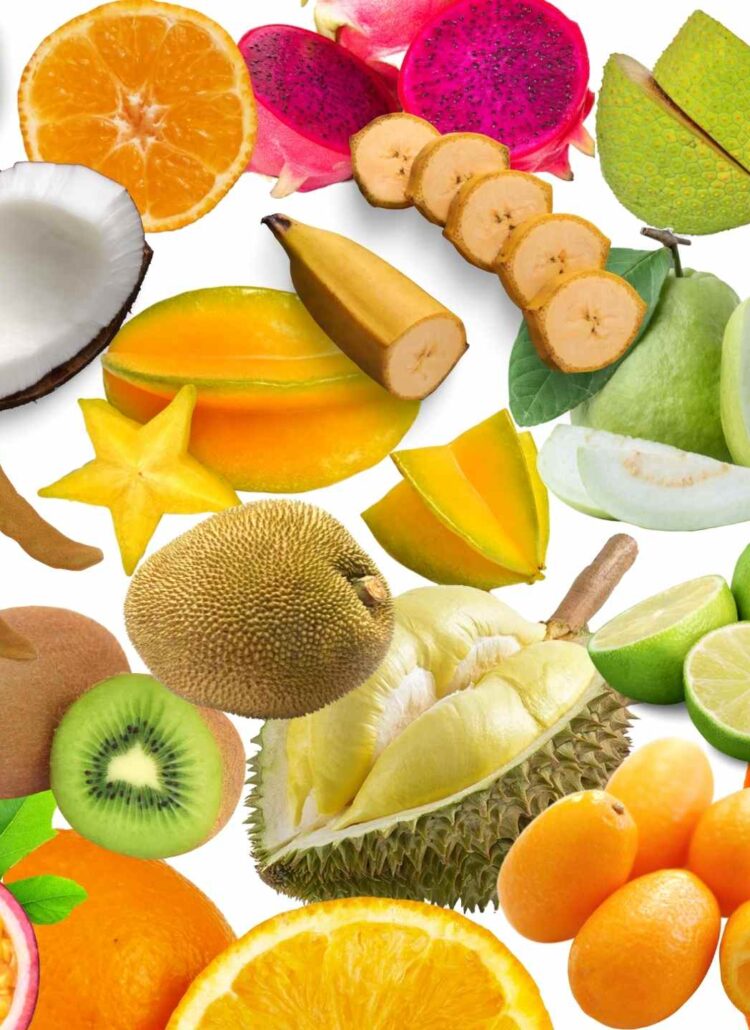
If you haven’t tried herbs for IBS, today is your blessed day to be reminded of the power of natural solutions.
Who has been doubled over, feeling like a knife is stabbing you in the gut?
You. Me. They. At one time or another 25-45 million Americans have either eaten the wrong combination of foods, eaten at the wrong time, or eaten under stress.
I cannot speak for you, but I have called 911 more than once, picked up by the heroic men in blue, and then once escorted inside the truck, have my symptoms magically go away.
Enter the land of IBS. Irreverent. Irritating. Ill-tempered IBS.
If you have been diagnosed with IBS, and have ruled out parasites, or any other problem that can mimic IBS symptoms, then you must consider these 7 herbs for IBS.
Mother Nature has everything in hand. She rarely misses an opportunity to solve the ails of humanity, whether in ancient times or for modern maladies.
Herbs can make powerful elixirs for a variety of health issues, but do your research before trying natural medicines.
I will list below some tried-and-true methods (6 out of the 7 I have used) for alleviating uncomfortable symptoms with herbs for IBS, along with a little humor. After all, when we laugh, that means we are not stressed, which in turn means IBS has less of a chance to do its dirty-rebellious work.
#1: Peppermint

Peppermints are often placed as a complimentary gift on the plate after dinner for a perfectly good reason—the stimulation of digestive enzymes. Peppermint activates the liver to produce more bile, which is an acid that digests your food.
Peppermint would be the first line of opportunity to consider for the treatment of IBS symptoms, in particular for pain and spasms.
Peppermint according to Ayurveda, has cooling and heating effects on the body and very effective herb for IBS, for its antispasmodic effects. It also helps to relieve cramping, gas, bloating, and assist in the relaxation of the muscles of the bowel wall.
This amazing herb has been used for indigestion and as a stomach soother since ancient times by the Egyptians, Greeks and Romans.
Peppermint is shown to be effective for constipation.
The best ways to use the peppermint herb for IBS:
Tea: Peppermint tea works particularly well with fennel tea for intestinal spasms and cramping. Purchase organic peppermint tea, either loose leaf or in tea bags.
Essential Oil: Drop two drops in 8 oz. of water and drink several times per day.
Capsules: When purchasing the capsules, get the enteric coated capsules. The coating enables the peppermint to get to the intestines before the capsule breaks down in the stomach, which could trigger heartburn. Take before meals for best results.
Here's Some Peppermint herbs I can recommend
Peppermint Capsules
Organic Peppermint Essential Oil
Peppermint Leaf Tea Bags Organic
#2: Ginger

Ginger isn’t just your neighbor’s hair color.
Ginger is another herb (rhizome) with a long history of usage. For at least 2,000 years it has been used in Chinese and Indian medicines to soothe stomach aches.
"Ginger can act to relax the smooth muscle of the GI tract, and it relaxes the nausea centers in the brain," says Lisa Ganjhu, DO, a clinical associate professor and internist in the Division of Gastroenterology and Hepatology for NYU Langone Health in New York City.
Ginger has powerful anti-inflammatory effects, meaning that it can help to eliminate or greatly reduce intestinal inflammation and cramping.
Ginger can be effective for diarrhea and constipation.
3 Ways to use Ginger for IBS:
Powder: I prefer to make a ginger tea using organic ginger powder after meals. It helps reduce gas potential and digest the food. I like to create a slightly creamy beverage by using some stevia, and a touch of plant-based milk.
Tea: you can use either fresh ginger by slicing an inch knob and then add to boiling water, allow to simmer covered for 10-15 minutes, strain ginger, add slight amount of honey (if IBS symptoms permit) and lemon. OR, organic ginger tea bags are sold in many markets.
Capsules: I rarely use capsules, when I can either use fresh or in powder form. But the option is available and highly effective for those who are not fond of drinking tea, or using it in meals.
Here's Some Ginger Root herbs I can recommend
Ginger Root Capsules
Organic Ginger Root Powder
Ginger Root Tea Bags Organic
#3 Slippery Elm

No log rolling on this tree.
Historically, Native Americans have used this herb for many ailments, but when they discovered that the inner bark mixed with water to create a mucilage, the healing powers for the stomach were revealed.
The slippery mucus from this bark forms a soothing layer to the lining of the stomach and the intestines, creating a barrier, thus alleviating painful abdominal symptoms from IBS.
In my experience with IBS, I found slippery elm to be very effective at alleviating stomach cramping and constipation. I actually combined slippery elm with marshmallow root and golden seal and all symptoms were gone in 2-3 weeks of use.
Of course, dietary changes need to occur for the effects of these herbs to be long-lasting. Once healing the bacterial imbalance of the flora of the gut with probiotics, some of the foods that are presently limited will be able to be resumed.
Slippery Elm is shown to be effective for constipation.
Two ways to use the slippery elm herb for IBS:
Capsules: take as directed on herbal supplement bottle. I took three times per day for 8 weeks.
Tea: I prefer to use powder for my tea, as it is easier and faster to mix and take on the go. I use 1 tsp. mixed with 8 oz hot water, 1/8 tsp stevia or 1 tsp. honey, pinch cinnamon, pinch cardamom, pinch nutmeg, 2-3 times per day.
Here's Some slippery elm herbs I can recommend
Slippery Elm Bark Capsules
Slippery Elm Powder Wildcrafted
#4: Marshmallow Root

Remember sleep-away camp? Roasting marshmallows over the fire with the stick your teenage crush had to search all over the campsite for? Well, your teenage crush was indeed sweet, but as for the marshmallow sweets—they can turn to sour stomachs for those with IBS.
But the marshmallow root, now that’s another story. This is another herb for IBS that helps to sooth the gut lining, and has been used for thousands of years for treating digestive maladies.
The name is derived from the Mallow plant and it grows in marshland areas, hence, the given name of Marshmallow.
Marshmallow has been used since ancient times in Egyptian, Roman, Greek and Arab cultures for its medicinal benefits. It is also used as a food source, since all parts of the Mallow plant are able to be eaten.
Three ways to use the Marshmallow herb for IBS:
Tea: 12 oz. boiling water with 1 tbsp. Marshmallow root, steep on simmer, covered for 15 minutes, strain and sweeten with 1 tsp. honey.
Capsules: 2000 mg. per day should do the trick, taking 1000 mg. twice a day. especially when combined with slippery elm.
Tincture: take according to tincture instructions.
Here's Some Marshmallow herbs I can recommend
Marshmallow Root Capsules
Organic Marshmallow Root Powder
Organic Marshmallow Leaf
#5 Cumin Seed

Cumin has been used since ancient times in Egypt and the Middle East. It was used as a spice, as well as for preserving mummies. Undoubtedly, the health benefits were also known for digestion, hence its importance within these cultures over 4000 years ago.
I wish I would have known about the effectiveness of cumin when I was suffering with IBS. I now cook with a fair amount of cumin. However, if I was currently cramping, bloated, gassy, and constipated, you better bet I’d be using cumin in a tea.
In a study indexed in the National Library of Medicine, Cumin extract was found to be effective for improving all IBS symptoms.
Shown to be effective for both constipation and diarrhea
An Effective use of the Cumin herb for IBS:
Cumin Seed Tea: 1 tsp. cumin seeds (slightly crushed and heated 1-2 minutes in the pan), 10-12 oz. boiling water, steep 5-8 minutes, strain, sweeten with stevia or honey, and add a slice of lemon. For an added benefit, add 1 tsp. fennel seeds and 1 tsp. coriander to the slightly roasted cumin before steeping and then strain.
Here's Some Cumin Products I can recommend
Cumin Seed Organic
Organic Black Cumin Seed Oil
Cumin Powder Organic
#6 Fennel Seeds

Fennel is very useful for gas and bloating, since it is an anti-spasmodic and a carminative. What carminatives do is prevent gas from forming, and if there is any intestinal gas formation, it will assist in the release of wind.
Fennel has been used since ancient times by the Egyptians and Chinese as a medicine, and also as a food.
I love fennel so much, that I eat it regularly as a salad. Below, I’ve given my favorite salad recipe.
1 bulb of fennel sliced on a Mandoline, as thin as possible, mix with fresh lemon juice, avocado oil, Himalayan sea salt and vegan parmesan cheese. Yum!
Three ways to use the fennel seed herb for IBS:
Seeds: Chew on fennel seeds before, during or after a meal. This will help digestion and gas.
Extract: fennel can be taken as an extract, and particularly helpful herb for IBS when combined in extract form with turmeric.
Tea: Fennel tea is perfect after a meal. The way I usually prepare my herbs for IBS is to make a large batch. I use 3-4 organic fennel tea bags, 3-4 organic peppermint tea bags, and 3-4 organic ginger tea bags in 32 oz. of boiling water. Simmer covered for 20 minutes. Leave on the counter for an hour. You will see oils in the top of the tea. These oils are magic! Take tea bags out, and refrigerate. Shake the large bottle of tea to distribute the oils, and drink ½ cup before and after meals.
Here's Some fennel herbs I can recommend
Fennel Seed Tea Bags Organic
Regularity Extract
#7 Triphala

Triphala is an ancient Ayuvedic remedy for many ailments, including gastrointestinal relief, anti-inflammation, stress reduction, constipation, and more.
The word triphala comes from ‘three fruits’ native to India. The fruit extracts used are Amalaki, Bibhitaki, and Haritaki.
The Best Ways to Use the Triphala formula for IBS:
Take on an empty stomach to maximize the benefits.
For constipation: have a glass full of warm water with 2 teaspoons of Triphala powder every night.
Capsules: taken once or twice per day
Liquid Extract: 30 drops in a cup of water or juice 1-3 times per day
Tea: I’ve included a video below for more detailed instructions on how to use the tea. Her recipe: ½ tsp triphala, 8 oz. water, cover with lid for a couple of hours. Drink in the morning or at night, but experiment based on how it affects you.
Here's A tRiphala Product I can recommend
Organic Triphala Powder
Important Health Note:
For all the recommended herbs, be sure to consult your GI specialist to make certain that these herbs will not interact with any current medications you may be taking, or will be the wrong fit for you if you are experiencing any other health issues.
Conclusion
To receive the most benefit from using herbs for IBS, it's important to further research the healing properties of peppermint, ginger, slippery elm, marshmallow root, fennel, cumin and Triphala. These herbs may work for some, and some of them may not. Experiment and see what works.
Happy healing friends.





